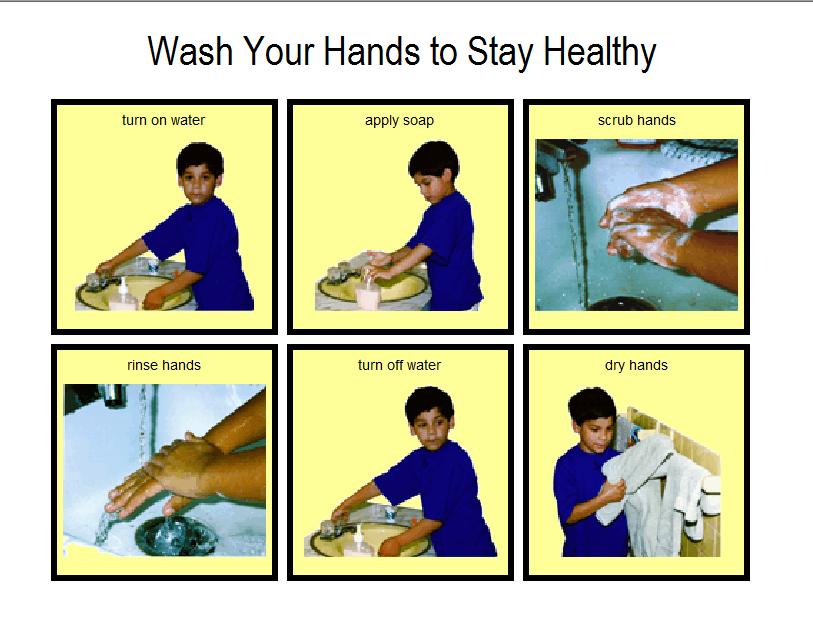When teaching high-level cognitive skills, it can be incredibly difficult to determine when you are finished. For example, let’s say we are teaching a learner the concept of before / after. We might do this by showing the learner a sequence of pictures like this:

We might teach this by asking the learner to:
- Point to what happened before the boy rinsed his hands.
- Point to what happened after the boy applied soap.
- Tell me what happened before the boy scrubbed his hands.
- Tell me what happened after the boy turned off the water.
After the learner acquires this skill with many sequences and shows generalization to novel, untaught sequences, we might think we are done. He now “understands” before / after. He can do it with sequences we have never shown him before! This skill is mastered! Time to celebrate.
But if you have been around for a while, you probably know it is too soon to celebrate. We are just getting started. We now need to teach:
When did the boy turn on the water?
The expected answer might be:
Before he applied soap.
OK, done! The learner mastered the before / after questions with “when” and it was integrated with the previous four questions. He showed generalization to novel examples that we didn’t teach. He has truly got it now!
No, probably not. Go ahead and celebrate some, but there’s still more to do. How about things like this:
What did the boy do before he dried his hands?
Or:
Before you touch your nose, clap.
Clap after you touch your nose.
Or:
The learner is playing a game with a group of friends. Who went before Joe? Who goes after Sally?
What if we combine it with other difficult concepts, like pronouns?
Who gets a turn before you? Whose turn is it after me?
And what about remote events:
What are you going to do after school?
What did you do before school today?
This kind of problem is present in virtually any teaching situation from preschool through graduate school. If you are interested in a deep dive, check out the book Theory of Instruction. Unfortunately, that book requires a few lifetimes to study. For some immediate teaching resources for elementary school children, check out the Direct Instruction programs written by Engelmann and colleagues.
Behavior analytic services should only be delivered in the context of a professional relationship. Nothing written in this blog should be considered advice for any specific individual. The purpose of the blog is to share my experience, not to provide treatment. Please get advice from a professional before making changes to behavior analytic services being delivered. Nothing in this blog including comments or correspondence should be considered an agreement for Dr. Barry D. Morgenstern to provide services or establish a professional relationship outside of a formal agreement to do so. I attempt to write this blog in “plain English” and avoid technical jargon whenever possible. But all statements are meant to be consistent with behavior analytic literature, practice, and the professional code of ethics. If, for whatever reason, you think I’ve failed in the endeavor, let me know and I’ll consider your comments and make revisions, if appropriate. Feedback is always appreciated as I’m always trying to Poogi.